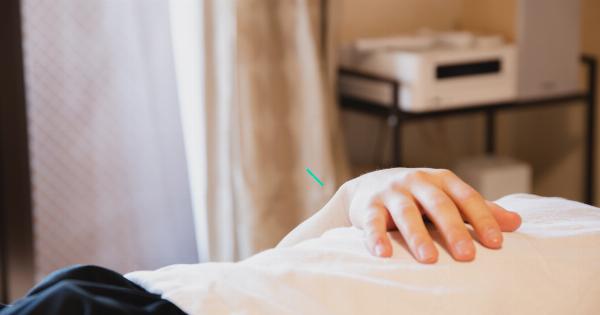Acupuncture therapy is an ancient Chinese practice aimed at balancing the flow of energy in the body. This technique involves inserting thin needles at strategic points in the skin to stimulate the body’s natural healing abilities.
For centuries, people have sought relief from pain, allergies, and other health conditions from acupuncture therapy. Recently, this practice has gained popularity in the Western world as a complementary or alternative treatment for a range of ailments.
How Acupuncture Works
Acupuncture therapy is based on the concept of energy flow in the body, called Qi (pronounced “chee”). According to Chinese medicine, Qi flows through a network of energy pathways called meridians.
These meridians connect all the organs and systems in the body. When Qi flows freely, the body is balanced and healthy.
When Qi flow is blocked or disrupted, it can lead to illnesses or pain. Acupuncture helps to restore the balance by stimulating the body’s natural healing response and promoting the flow of Qi.
The needles used in acupuncture therapy are very thin, and most people do not experience pain during the treatment.
Health Benefits of Acupuncture Therapy
Acupuncture therapy has been used to treat a variety of health conditions. According to the World Health Organization, acupuncture has been proved effective in treating over 100 conditions, including:.
- Pain: Acupuncture therapy has been used to treat various types of pain, including back pain, neck pain, and osteoarthritis.
- Allergies: Acupuncture therapy can help to reduce the symptoms of allergies by balancing the immune system and reducing inflammation.
- Anxiety and Depression: Acupuncture therapy can help to reduce anxiety and depression symptoms by reducing stress, stimulating the release of endorphins, and balancing the mood-regulating hormones.
- Insomnia: Acupuncture therapy can help to improve sleep quality and relieve insomnia symptoms by reducing stress and anxiety.
- Headaches and migraines: Acupuncture therapy can reduce the number, duration, and intensity of headaches and migraines.
In addition, acupuncture therapy can help to promote overall wellness by reducing stress, improving circulation, and enhancing the body’s natural healing response.
What to Expect During an Acupuncture Therapy Session
If you are considering acupuncture therapy, it is essential to find a licensed and experienced practitioner.
At your first appointment, the practitioner will ask you about your current health concerns and medical history before examining your tongue, pulse, and other diagnostic signs. Based on this assessment, the practitioner will develop a personalized treatment plan for you.
The acupuncture therapy session typically lasts 30 to 60 minutes. During the session, the practitioner will insert thin needles at specific acupuncture points on your body. These points may be near or distant from the area of your pain or illness.
Once the needles are in place, you will lie down and relax for several minutes while the practitioner stimulates the needles.
After the session, you may feel relaxed and energized. Some people report immediate improvement in their symptoms, while others may need several sessions for the full benefits of acupuncture therapy.
Safety and Side Effects of Acupuncture Therapy
Acupuncture therapy is generally safe when performed by a licensed and experienced practitioner. The needles used in acupuncture are sterile and disposable to prevent infection. However, some side effects may occur, such as:.
- Mild bruising or bleeding at the needle insertion site
- Dizziness or fainting
- Nausea
- Temporary worsening of symptoms
If you experience any side effects, you should inform your practitioner immediately.
Conclusion
Acupuncture therapy is a safe and effective complement and alternative to traditional medical treatments. It can help to reduce pain, allergies, anxiety, insomnia, headaches and migraines, and improve overall wellness.
If you are considering acupuncture therapy, be sure to find a licensed and experienced practitioner and discuss your health concerns and medical history before the treatment.





























